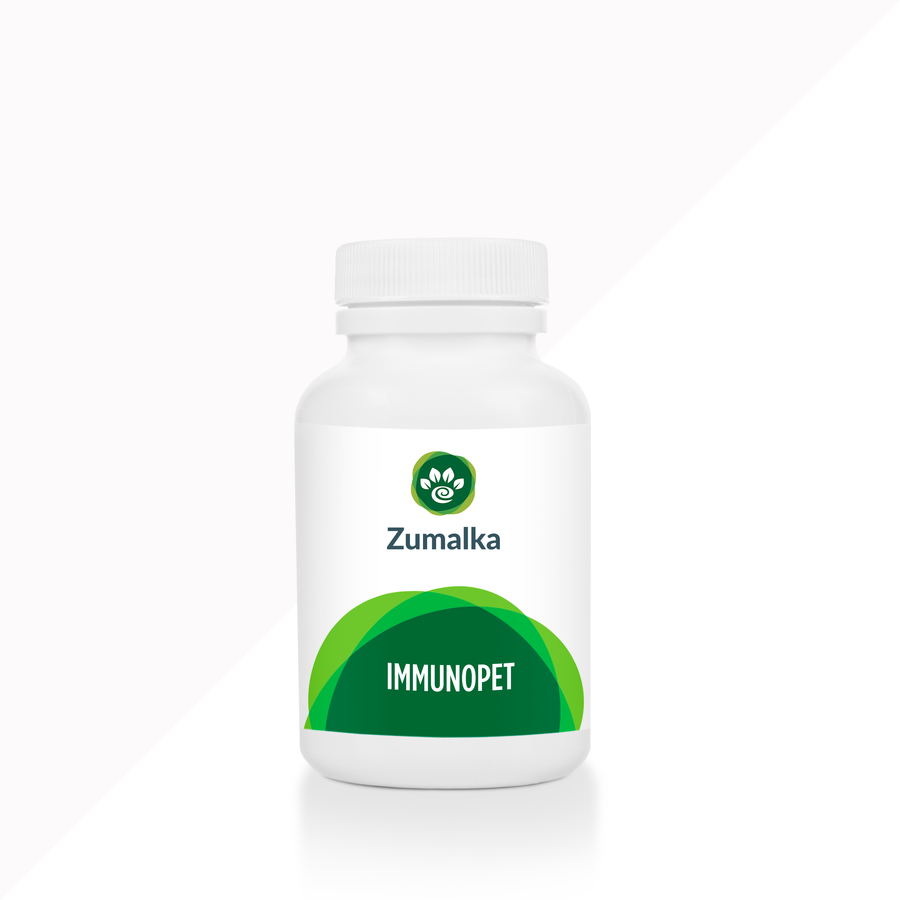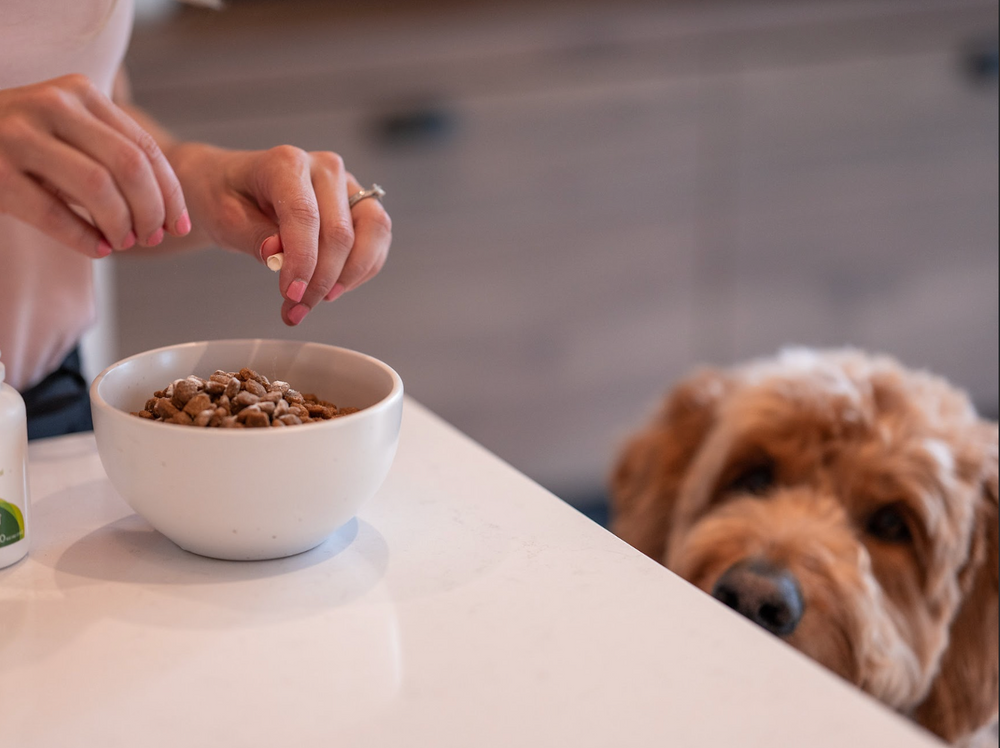10 Expert-Proven Tips for Senior Boston Terrier Joint Health
List of Contents
- #1. Maintain a healthy weight.
- #2. Provide your aging Boston Terrier with proper nutrition.
- #3. Incorporate regular, gentle exercise into your pet’s routine.
- #4. Consider premium natural joint supplements.
- #5. Provide your older dog with orthopedic bedding.
- #6. Consult with a professional.
- #7. Use mobility aids.
- #8. Create a safe home environment.
- #9. Ensure your dog gets plenty of rest.
- #10. Protect your senior Boston Terrier from extreme temperatures.
- Key Takeaways
- FAQs
As Boston Terriers enter their senior years, maintaining joint health becomes essential for their comfort and mobility. Supporting their joints helps preserve their playful spirit and overall quality of life.
These charming "American Gentlemen" are known for their active nature. Still, they are also predisposed to orthopedic issues such as hip dysplasia, arthritis, and patellar luxation, which can lead to pain, discomfort, and reduced mobility.
Proactive joint care is essential for helping your senior Boston Terrier stay active and comfortable as they age. With the right support, their golden years can be full of mobility, flexibility, and less joint pain.
Supporting your senior Boston Terrier’s joint health is key to maintaining their comfort and mobility. These 10 expert-backed tips offer simple, effective ways to keep their joints strong and pain-free:

#1. Maintain a healthy weight.
Maintaining your senior Boston Terrier's healthy weight is crucial for protecting their joints. Extra pounds increase joint strain, speed up degeneration, and can worsen breathing issues. Support their health with a balanced diet and consistent portion control.
To support their overall health, focus on a balanced, nutrient-rich diet tailored to their age and activity level. Consistent portion control and regular monitoring can help prevent weight gain and keep your Boston Terrier comfortable and mobile in their senior years.
#2. Provide your aging Boston Terrier with proper nutrition.
Proper nutrition is essential for supporting your senior Boston Terrier’s joint health. High-quality senior dog food is formulated to meet aging dogs’ specific needs and can help maintain joint function and mobility. Look for formulas that include key nutrients like glucosamine and chondroitin to support flexibility and reduce inflammation.
Every dog is different, so it's important to choose a diet tailored to your Boston Terrier’s unique health profile. Consulting your veterinarian or pet nutritionist ensures you select the most effective food to support their joints and overall well-being.
#3. Incorporate regular, gentle exercise into your pet’s routine.
Gentle, consistent exercise is key to preserving your senior Boston Terrier’s joint health, strength, and mobility. Low-impact activities keep their joints flexible without adding unnecessary strain. Short daily walks, swimming, and calm interactive play are all excellent ways to keep them active and comfortable.
Be mindful of their limitations, and avoid intense activity or rough terrain, especially in extreme heat or cold. Tailoring exercise to your dog’s energy level and physical condition will support mobility while keeping them comfortable and safe.
#4. Consider premium natural joint supplements.
Adding joint supplements to your senior Boston Terrier’s diet can provide valuable support for their mobility and comfort. Many supplements include beneficial ingredients like omega-3 fatty acids, which help reduce inflammation, and antioxidants that promote overall joint health. Green-tipped mussels are also a nice choice.
For the best results, consult your veterinarian or a pet nutritionist to find a supplement tailored to your dog’s age, weight, lifestyle, and joint health needs. One option worth considering is Zumalka’s JOINT & HIP SUPPORT, which is designed to help reduce inflammation, promote mobility, and support overall joint function in aging dogs.
JOINT & HIP SUPPORT is specially formulated to enhance mobility, flexibility, and overall joint health in senior dogs. It supports healthy joints, muscles, tendons, and ligaments, particularly in areas affected by inflammation and stiffness.

#5. Provide your older dog with orthopedic bedding.
Providing orthopedic bedding is a simple yet effective way to support your senior Boston Terrier’s joint health. As dogs age, their joints become more sensitive, and a supportive sleeping surface can make a big difference in their comfort.
Beds with memory foam or orthopedic support help relieve pressure on sore joints, reduce pain, and promote deeper, more restful sleep. Investing in quality bedding ensures your dog wakes up feeling more refreshed and mobile each day.
#6. Consult with a professional.
Scheduling regular check-ups with your veterinarian or a trusted pet homeopathy expert is essential for maintaining your senior Boston Terrier’s joint health. For aging dogs, exams every six months allow for closer monitoring of changes in mobility, weight, and overall joint condition.
Early detection of joint issues through senior wellness exams or diagnostic tools like X-rays can lead to more timely and effective treatment. Proactive care helps manage pain, slow degeneration, and ultimately improve your dog’s comfort and quality of life.
#7. Use mobility aids.
Mobility aids play an important role in reducing joint strain for senior Boston Terriers. Ramps or pet stairs offer safe access to beds, furniture, or vehicles, helping to prevent the impact and stress caused by jumping.
For longer outings, a dog stroller can help your pup enjoy fresh air and social interaction without overexertion. These supportive tools promote independence while minimizing stress on aging joints, improving both comfort and quality of life.

#8. Create a safe home environment.
A safe home environment is key to protecting your senior Boston Terrier’s mobility and joint health. Older dogs are more vulnerable to slips, falls, and joint injuries, especially on slick or hard surfaces.
Add non-slip rugs or foam mats to hardwood or tile floors to improve traction and stability. Also, provide warm, quiet resting areas away from drafts to ensure your dog stays comfortable, relaxed, and protected from unnecessary joint stress.
#9. Ensure your dog gets plenty of rest.
Adequate rest is just as essential as gentle exercise when it comes to protecting your senior Boston Terrier’s joint health. Overexertion can strain their joints, cause discomfort, and delay recovery.
Create a calm, comfortable space where your dog can relax without distractions. Quality rest allows their joints and muscles to recover, supporting long-term mobility and overall well-being.
#10. Protect your senior Boston Terrier from extreme temperatures.
Protecting your senior Boston Terrier from temperature extremes is important for managing joint health and overall comfort. Their short coats provide little insulation, making them especially sensitive to both cold and hot weather.
In colder months, use warm clothing or cozy blankets to help reduce joint stiffness and discomfort. During hot weather, keep them cool, limit activity, and avoid damp conditions, as these can worsen arthritis symptoms and joint pain.
Key Takeaways
By following these tips, you can actively support your senior Boston Terrier’s joint health and overall well-being. With proper care, they can stay mobile, comfortable, and continue sharing joyful moments with you throughout their golden years.
For the best results, always consult your veterinarian or pet nutritionist for personalized guidance and treatment plans tailored to your dog’s unique needs. Proactive, informed care is the key to a happier, healthier life for your beloved companion.
FAQs
At what age is a Boston Terrier considered a senior?
A Boston Terrier is typically considered a senior around 7 to 8 years of age. At this stage, age-related changes may begin, making proactive joint care and regular veterinary checkups especially important.
What is the main cause of death in Boston Terriers?
Cancer, especially brain and mast cell tumors, is the most common cause of death in Boston Terriers. Routine vet visits and early diagnosis are key to managing the disease and prolonging your dog’s life.
Do Boston Terriers have joint problems?
Yes, Boston Terriers can develop joint problems, especially as they age. Common issues include arthritis and patellar luxation. Maintaining a healthy weight, providing joint support, and scheduling regular vet checkups can help manage and prevent discomfort.
At what age do Boston Terriers slow down?
Boston Terriers typically begin to slow down around 7 to 8 years of age. This is when age-related changes, including reduced energy and joint stiffness, often start to appear in the breed.
What is the lifespan for Boston Terriers?
Boston Terriers have an average lifespan of 11 to 13 years. With proper care, such as a balanced diet, routine veterinary checkups, and regular exercise, they can enjoy a long, healthy life well into their senior years.
Are Boston Terriers prone to dementia?
Yes, Boston Terriers can be prone to canine cognitive dysfunction, a form of dementia common in senior dogs. Early signs include confusion, disorientation, and changes in behavior. Regular vet checkups support early detection and care.
Do Boston Terriers have lots of health issues?
Boston Terriers are typically healthy, but they can be prone to issues like brachycephalic airway syndrome, eye disorders, and joint problems. With regular vet care and preventive attention, many of these conditions can be effectively managed.
How often should a Boston Terrier be bathed?
Bathing your Boston Terrier every 4 to 6 weeks helps maintain a clean coat, minimize odor, and support skin health. Adjust frequency based on activity level, skin condition, and your vet’s or pet homeopath’s guidance.
What is the longest a Boston Terrier has lived?
The longest recorded lifespan of a Boston Terrier is around 15 to 17 years. With excellent care, including proper nutrition, regular exercise, and consistent veterinary checkups or pet homeopathy specialist consultations, some Boston Terriers can live well beyond the average expectancy.









Leave a comment